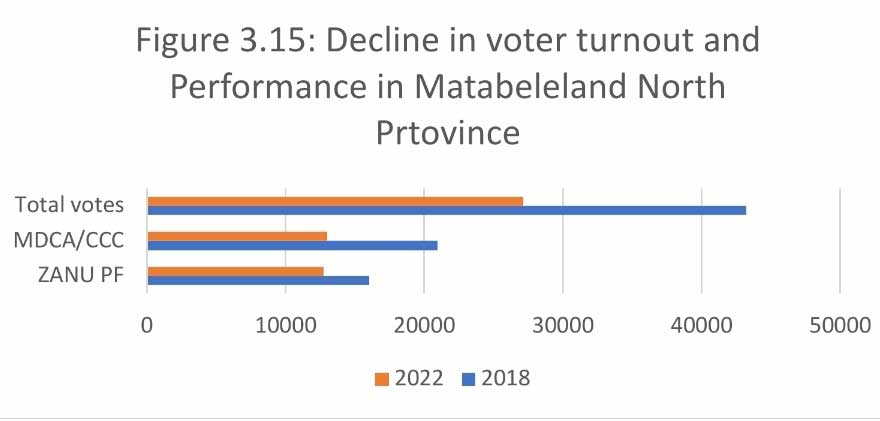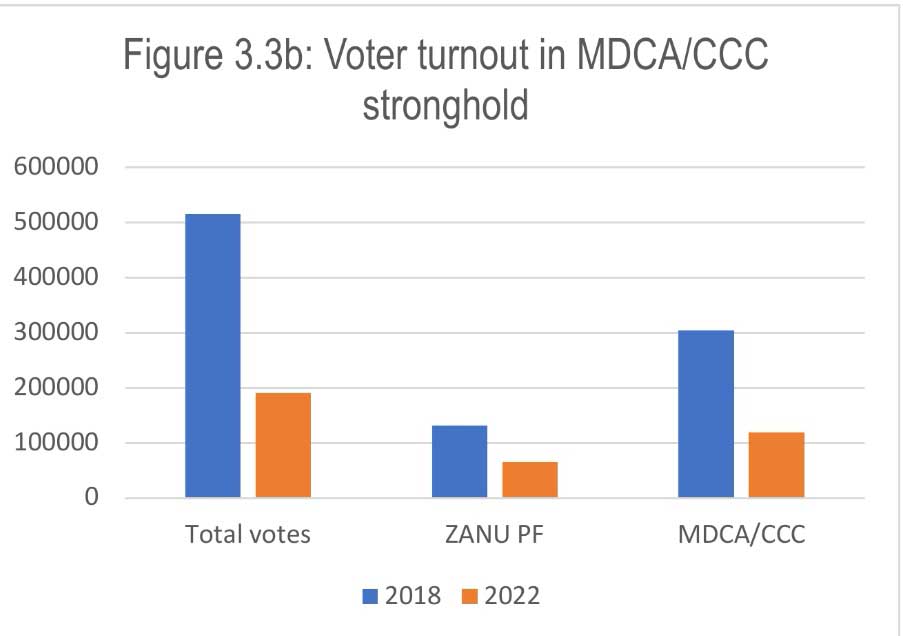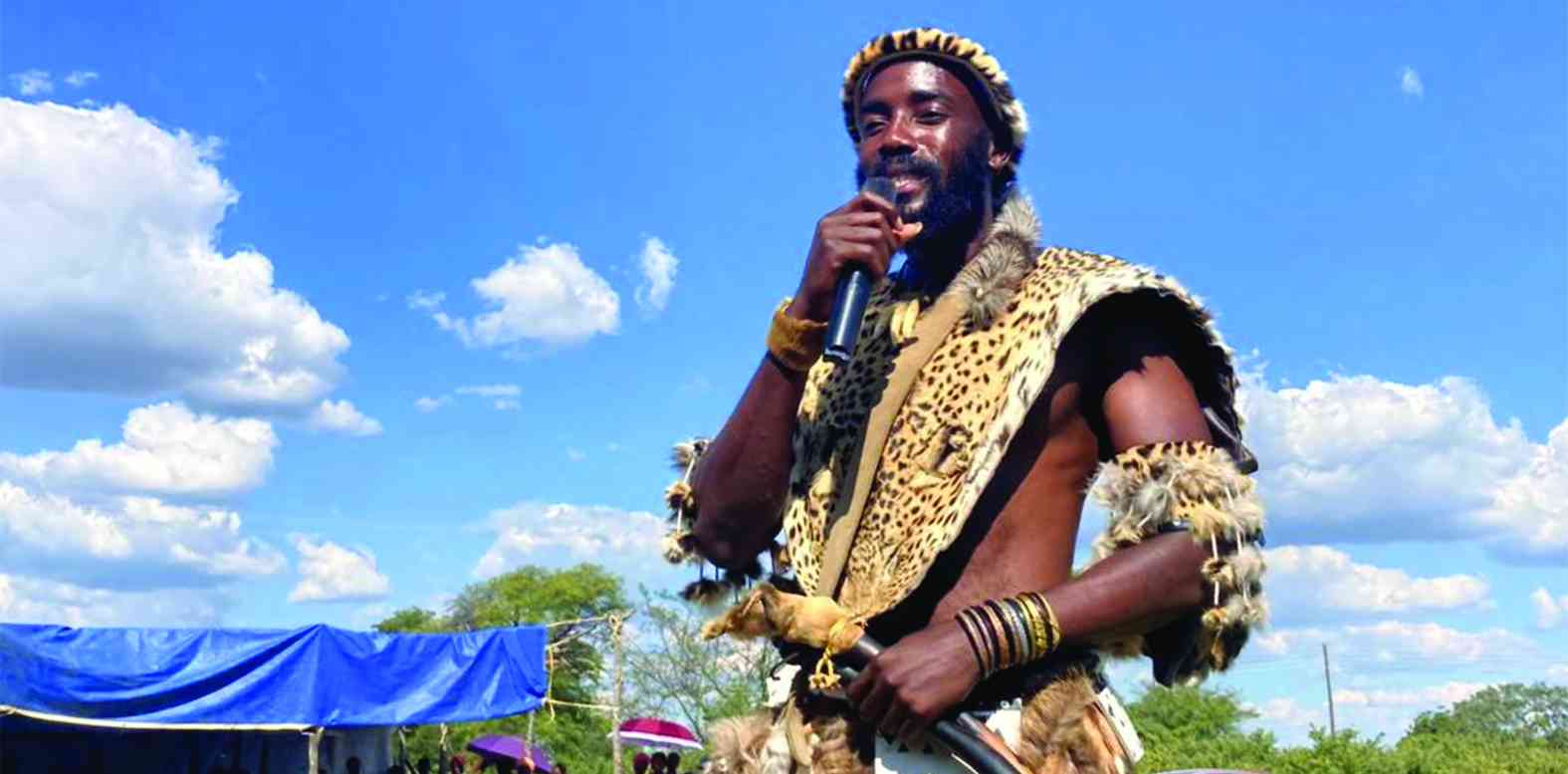
BY NOKUTHABA DLAMINI Bongani Ndlovu, a Zanu PF councillor in Matabeleland North’s Bubi district holds the unenviable record of registering the least number of voters in the March 26 parliamentary and local government elections.
Only 27 people voted for Ndlovu to represent Bubi’s ward six, the official tally of the council by-elections released by the Zimbabwe Electoral Commission (Zec) showed.
His closest rival Benjie Mpofu of the newly formed Citizens Coalition for Change (CCC) garnered a meagre nine votes.
According to ZEC, ward six had 1 000 registered voters when the by-elections were held and the number of people who turned up to vote for the new council indicated a disturbing lack of interest in local elections.
In an almost similar situation only 209 people out of a possible 709 in Victoria Falls’ turned up to elect the new councillor for ward one.
A statistical analysis of the voter turnout in the March 26 by elections by The Standard in collaboration with the Information for Development Trust (IDT) — a non-profit organisation that supports journalists in Zimbabwe and in the region to investigate issues of corruption in the public sector and bad governance –showed that the Bubi and Victoria Falls scenario demonstrated a worrying trend of voter apathy.

There were 28 parliament seats and 122 local government vacancies that were up for grabs as the county held its first by-elections since the 2018 polls following a ban on polls due to the outbreak of Covid-19.
Analysis of the by-election results backed by research by the Zimbabwe Democracy Institute (ZDI) showed that there was a 37% decline in the number of people that turned out to vote in the by-elections in Matabeleland North compared to those that cast their ballots in the 2018 polls.
- Chamisa under fire over US$120K donation
- Mavhunga puts DeMbare into Chibuku quarterfinals
- Pension funds bet on Cabora Bassa oilfields
- Councils defy govt fire tender directive
Keep Reading
Binga North was the only constituency in the province where there was a high voter turnout after 20 000 people cast their ballots to choose the new MP.
ZDI’s analysis showed that the opposition recorded a bigger decline in the number of people, who voted for its candidates as the CCC candidates got 38% less votes compared to what the MDC Alliance garnered in the 2018 elections.

MDC Alliance was the country’s largest opposition party in the 2018 polls, but was eclipsed by the three month old CCC in the latest by-elections.
Zanu PF saw a 21% decline in the number of voters who backed its candidates in the by-elections compared to the previous elections.
“Zanu PF improved its performance in Matabeleland North during the 2022 by-elections from the 2018 elections as shown by a 10% increase from 37% in 2018 to 47% in 2022 whereas CCC remained static (48%) between 2018 and 2022,” ZDI said.
“The winning margin of the opposition in these areas is decreasing.”
The research showed that voter apathy characterised the by-elections in all the country’s 10 provinces with Harare registering a staggering 66% decline in voter turnout compared to the 2018 elections.
Voter turnout in the general elections, which were the first since the ouster of long time ruler Robert Mugabe in a military coup a year earlier, was 75%.
Carol Mubita, a Matabeleland North based election observer, said worsening voter apathy showed that people were losing faith in political leaders given the state of the economy and their failure to deliver on election promises.
“This is why in Bubi only 37 people voted. I was there before the by-elections and the mood was that even if they voted they would remain stuck in poverty,” Mubita said.
“Politicians have failed the people they represent, and the unemployment levels continue going up.
“This is the reason why very few youths turned up for either the ruling party or the opposition.”
Pedzisayi Ruhanya, a Harare-based academic and political analyst, said the reasons why Zimbabweans were not turning out to vote ranged from interference in electoral processes by security forces, waning confidence in Zec and the opposition’s limited mobilisation capabilities.
Ruhanya cited political violence often blamed on the ruling Zanu PF ahead of the March by-elections and moves by security forces to stop the opposition from campaigning for the poor turnout.
“You find them through Zanu PF storming a CCC rally and as such, one individual was killed in Kwekwe,” he said.
“Then you see that in Gokwe again where we saw the deployment of violent police with water cannons and again in Marondera where the police stopped a meeting of the CCC.
“So there is an unholy alliance used by Zanu PF as the security apparatus in which the military and police work as the commissariat of Zanu during the elections
“When you look at voter turnout, it affected the numbers because these people are intimidating the electorate.
“We are saying that the police and the military state apparatus should operate in-terms of the provisions of the law and the law does not allow them to do bidding for Zanu PF.
“They must treat political parties and the citizens equally rather than to have one law for Zanu PF and another for the citizens because that’s what led to this poor voter turnout.”
Wes Beal, a member of Pachedu, a group that has been exposing the poor state of the voters roll and other electoral malpractices on social media, believes that although questions around ZEC’s credibility could result in people losing confidence in the electoral system, voter turnout during by-elections was always very low compared to general elections.
“ZEC hasn’t released the number of votes cast (to date), but that said, turnout is always lower in by-elections compared to the national elections the world over,” Beal said.
“The races are not as high profile and don’t generate as much interest and the other factor is voter confusion about their polling station location.”
There were widespread reports of people that were turned away from polling stations because they had been moved to different stations without their knowledge.
Zimbabwe’s voters roll is polling station based. ZEC was also accused of surreptitiously moving polling stations.
Ruhanya said ZEC’s conduct defranchised voters.
“During national elections there is more enthusiasm as a lot would be at stake, therefore, voter turnout in by-elections compared to national elections and this is a historical pattern world over,” he said.
“There is another problem with ZEC changing voting stations without informing the people and that also affected the turnout.
Beal said people also lost confidence in the electoral system because of poor performances by elected representatives.
“When people don’t think voting will make a difference in their life, they don’t vote,” he added.
Ruhanya said voter apathy was not the solution for citizens, who were not happy about the delivery of elected representatives.
“For one to be heard, they should cast their votes, but it’s up to the voters because if you do not vote and then you complain that there is no service delivery in communities, you cannot have it because if you want to be represented then you have to go and vote,” he said.
“We say this because when decisions come about how your communities are administered, you will be led by a few who turned up to vote.
“This is why in countries like Australia it is a criminal offence not to vote although in Zimbabwe in terms of the constitution you have the right to vote or not to.”
Zimbabwe will hold general elections next year and ZEC is already working on the delimitation of constituencies.










